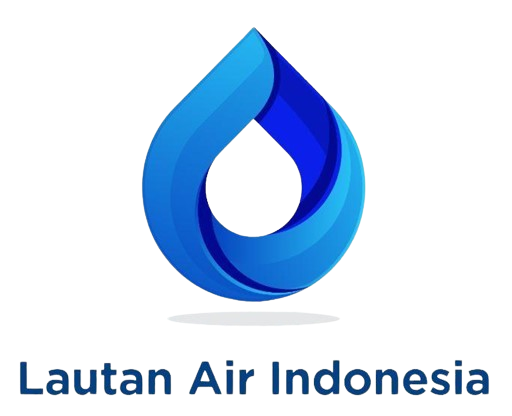Boiler feed water is a crucial component in steam generation systems, both for industry and power generation. However, one of the biggest challenges in boiler feedwater management is the presence of dissolved oxygen. Although it may seem trivial, oxygen in feedwater can cause serious corrosion to pipes, boilers, and other equipment. This corrosion not only reduces system efficiency but also increases maintenance costs and the risk of equipment failure.
If oxygen is not controlled, the long-term effects can be very detrimental. Metals in the boiler system will oxidize, forming rust and scale that can clog pipes and reduce heat transfer. As a result, energy consumption increases, efficiency decreases, and equipment life is shortened.
Not only that, corrosion due to oxygen can cause pipe leaks that endanger worker safety and disrupt operational continuity. Therefore, removing oxygen from boiler feedwater is not just a recommendation but a mandatory step for industries that rely on boiler systems.
Losses Caused by Oxygen in Boiler Feed Water
Before we discuss solutions, let’s take a deeper look at how oxygen can cause damage.
1. Corrosion on Pipes and Boilers
Oxygen reacts with metals to form ferric oxide (rust) which accelerates material degradation. This corrosion reduces the thickness of the pipe, increasing the risk of leaks that can lead to production and safety losses.
In severe cases, corrosion can cause total failure of the pipe or boiler, forcing an unexpected system shutdown.
Read Also: Scaling and Corrosion in Boilers: A Hidden Threat to Face
2. Crust and Sediment Formation
Iron particles from corrosion will be carried in the water flow and eventually settle in the system. These deposits form scale that reduces heat transfer efficiency, increases fuel consumption, and shortens the operational life of the boiler.
Scale buildup can also cause overheating in certain parts of the boiler which risks damaging the metal structure.
3. Damage to Boiler Components
Valves, pumps, and heat exchangers are some of the components that are particularly susceptible to the effects of dissolved oxygen. Accumulated corrosion can clog water flow paths, reduce system performance, and increase maintenance and replacement costs.
Premature wear on these components can lead to decreased operational efficiency and increased system downtime.
4. Operational Disruption
Uncontrolled corrosion can lead to leaks that require operational shutdowns for repairs. Downtime due to repairs not only results in decreased productivity but also increases overall operating costs.
In some cases, large leaks can cause system failures that endanger workers and the surrounding environment.
With all of these risks, it is clear that removing oxygen from boiler feedwater should be a top priority in industrial boiler system management.
Read Also: Why Does Boiler Heating Efficiency Decrease?
Effective Ways to Remove Oxygen from Boiler Feed Water
Following are some of the main methods used to remove oxygen from boiler feed water:
1. Use of Deaerator
Deaerator is a mechanical equipment specifically designed to remove oxygen and other dissolved gases from boiler feed water. Its working principle is by:
- Heating water to near boiling point to release dissolved gases.
- Using pressure and steam jets to drive oxygen from the water.
- Collecting oxygen-free water ready for use as boiler feed.
Advantages of using a deaerator:
- Effectively reduces oxygen levels to below 7 ppb (parts per billion).
- Reduces consumption of oxygen-binding chemicals.
- Increases boiler operational efficiency.
2. Use of Chemical Oxygen Scavenger
If the installation of a deaerator is not possible or as a complement, the use of oxygen scavenger chemicals is essential. These chemicals react with dissolved oxygen in water and convert it into compounds that are harmless to the boiler system. Some types of chemical oxygen scavengers that are commonly used:
- Sodium Sulfite (Na2SO3) – Reacts rapidly with oxygen to form a safe sulfate.
- Hydrazine (N2H4) – Effective in high pressure systems and does not produce solids.
Advantages of using chemical oxygen scavenger:
- Prevents corrosion by removing oxygen remaining after deaeration.
- Easy to apply in various operational conditions.
- Effective in boiler systems without deaerators.
3. pH Control and Electrical Conductivity Control
Controlling pH and electrical conductivity (EVC) in boiler water also plays a role in preventing corrosion due to oxygen. A pH that is too low can accelerate the oxidation process, while a high EVC indicates the presence of impurity ions that can worsen corrosion.
Solutions that can be applied:
- Adjusting the pH by adding alkali such as sodium hydroxide (NaOH) to keep it in the optimal range (8.5 – 10.5).
- Performing periodic blowdown to reduce impurity ions in the boiler water.
4. Regular Monitoring and Analysis
Monitoring the quality of boiler feed water is very important to ensure oxygen remains within safe limits. Some steps that can be taken:
- Using a dissolved oxygen (DO) meter to monitor dissolved oxygen levels.
- Conducting periodic chemical tests to control the effectiveness of chemical treatment.
- Using an automatic monitoring system for faster response to changes in feed water conditions.
Remove Oxygen from Boiler Feed Water with Lautan Air Indonesia
Lautan Air Indonesia has over 40 years of experience in providing the best solutions for industrial water treatment, including oxygen removal from boiler feed water. We offer:
- Chemical Oxygen Scavenger Supply – Quality products specially formulated for industrial needs.
- Water Consulting and Analysis Services – Our team of experts are ready to assist in monitoring and managing your boiler water quality.
- Automatic Monitoring and Control System – Ensures real-time water treatment effectiveness.
With the right solution, you can increase boiler efficiency, reduce maintenance costs, and extend the life of your equipment.
Don’t let oxygen damage your boiler system. Trust Lautan Air Indonesia to provide boiler feedwater treatment solutions. Contact us now for a free consultation and the best solution for your industrial needs!


